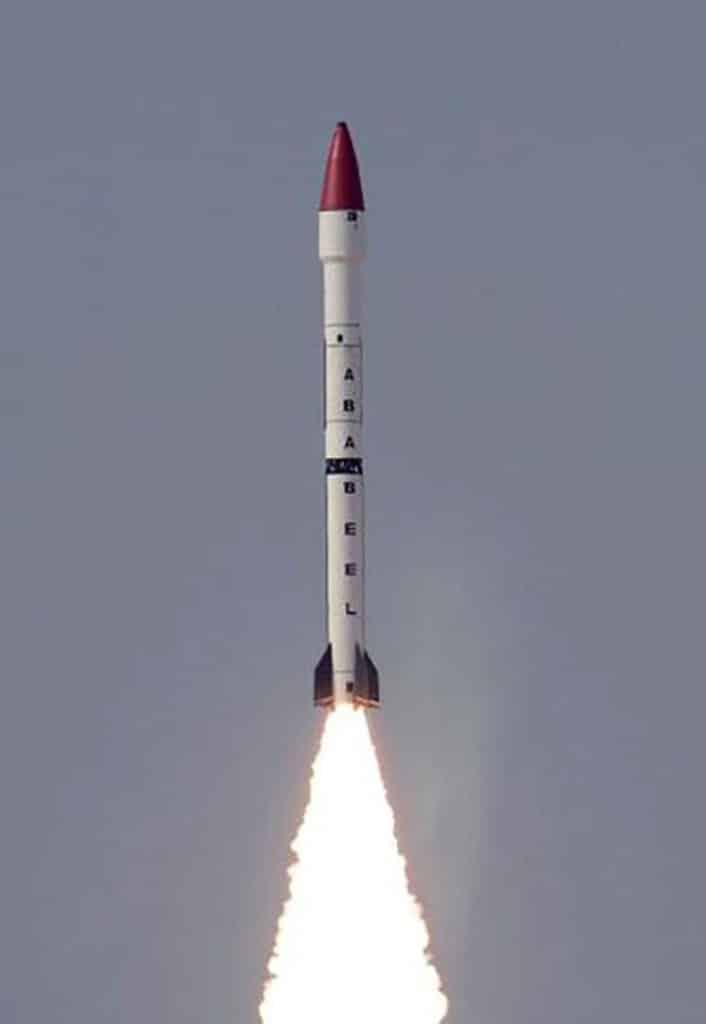SOURCE: IDRW.ORG TEAM

Pakistan recently conducted a test of its Ababeel missile, marking a significant development in its ballistic missile program. However, what has raised eyebrows is the noticeable silence surrounding previous claims that the missile is capable of carrying multiple warheads, known as Multiple Independently Targetable Reentry Vehicles (MIRVs), which can target different locations simultaneously.
The test, as reported by the Inter-Services Public Relations Pakistan (ISPR), was conducted with a focus on revalidating “various design, technical parameters, and performance evaluation of different sub-systems.” The statement clarified that the test’s primary aim was to “strengthen deterrence and enhance strategic stability in the region.” This underscores the significance of Pakistan’s missile program in the context of regional security and its commitment to maintaining a credible deterrent.
In 2017, ISPR had asserted that the Ababeel missile had a range of 2,200 kilometers and was designed to ensure the “survivability of Pakistan’s ballistic missiles” in an environment where countermeasures were on the rise. However, what has garnered international attention is the MIRV capability attributed to the Ababeel. MIRVs allow a single missile to carry multiple warheads, each with the potential to hit different targets, making them a formidable and complex technology.
It is essential to note that previous tests of the Ababeel missile have not always been successful. In 2018, an incident was reported where the missile was on the launch site but did not take off, as discernible fumes of rocket exhaust were visible. Given this, the absence of any official announcement regarding the success of the Ababeel’s MIRV capabilities raises questions.
The claimed MIRV capability of the Ababeel missile presents a complex scenario. MIRVs are typically associated with Intercontinental Ballistic Missiles (ICBMs) due to their extended range and the need to hit multiple distant targets. The Ababeel’s limited range, as reported, makes the MIRV claims somewhat unusual in the context of existing international norms.
International defense analysts and experts have been skeptical about the Ababeel’s true MIRV capabilities, especially considering its range. MIRVs are often featured in ICBMs capable of reaching far-off targets. Therefore, Pakistan’s assertions about the Ababeel’s MIRV technology have prompted close scrutiny and debate in the international defense community.
NOTE : Article cannot be reproduced without written permission of idrw.org in any form even for YouTube Videos to avoid Copy right strikes. Websites doing illegal reproductions will get DCMA and Legal Notices.